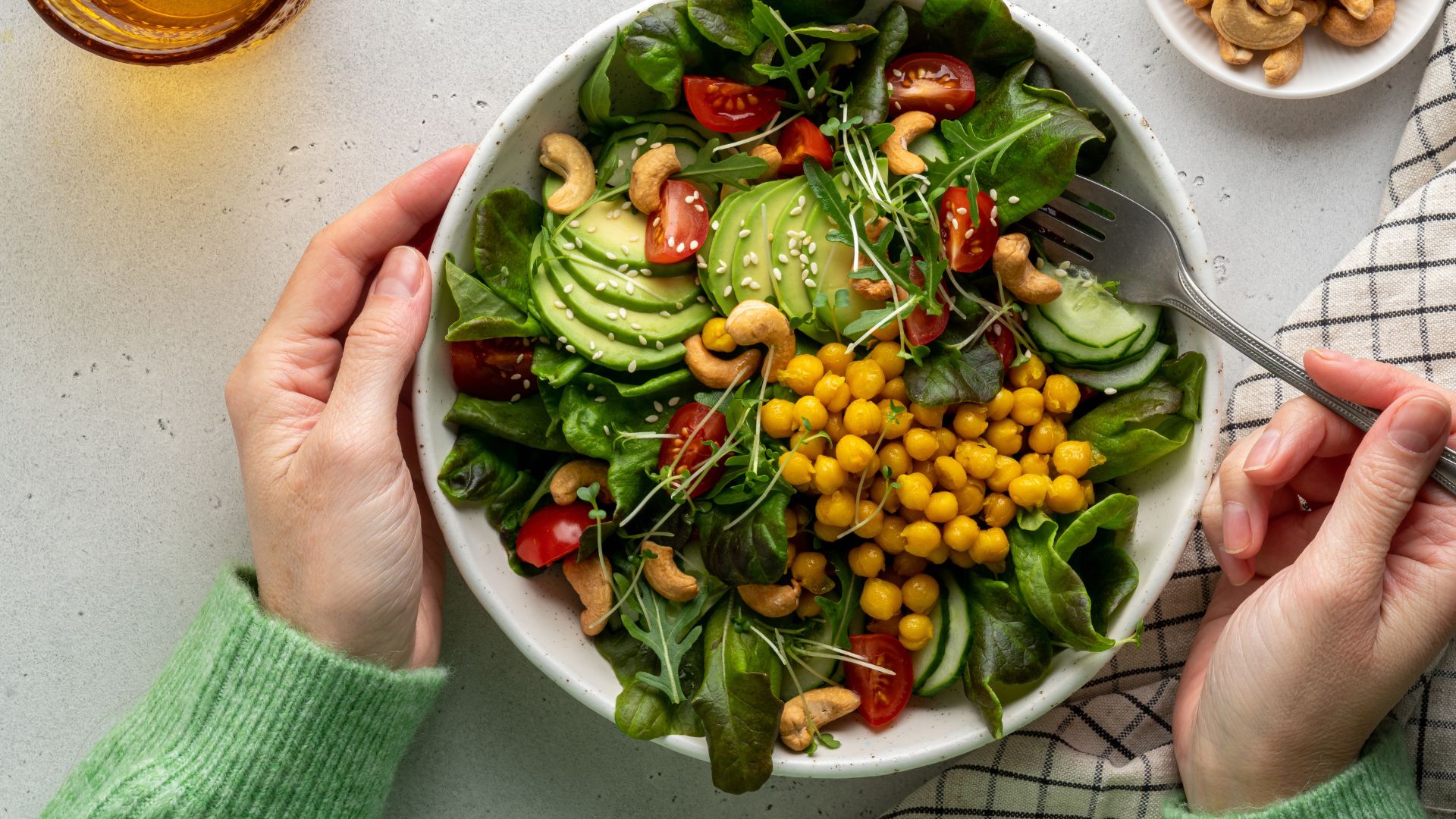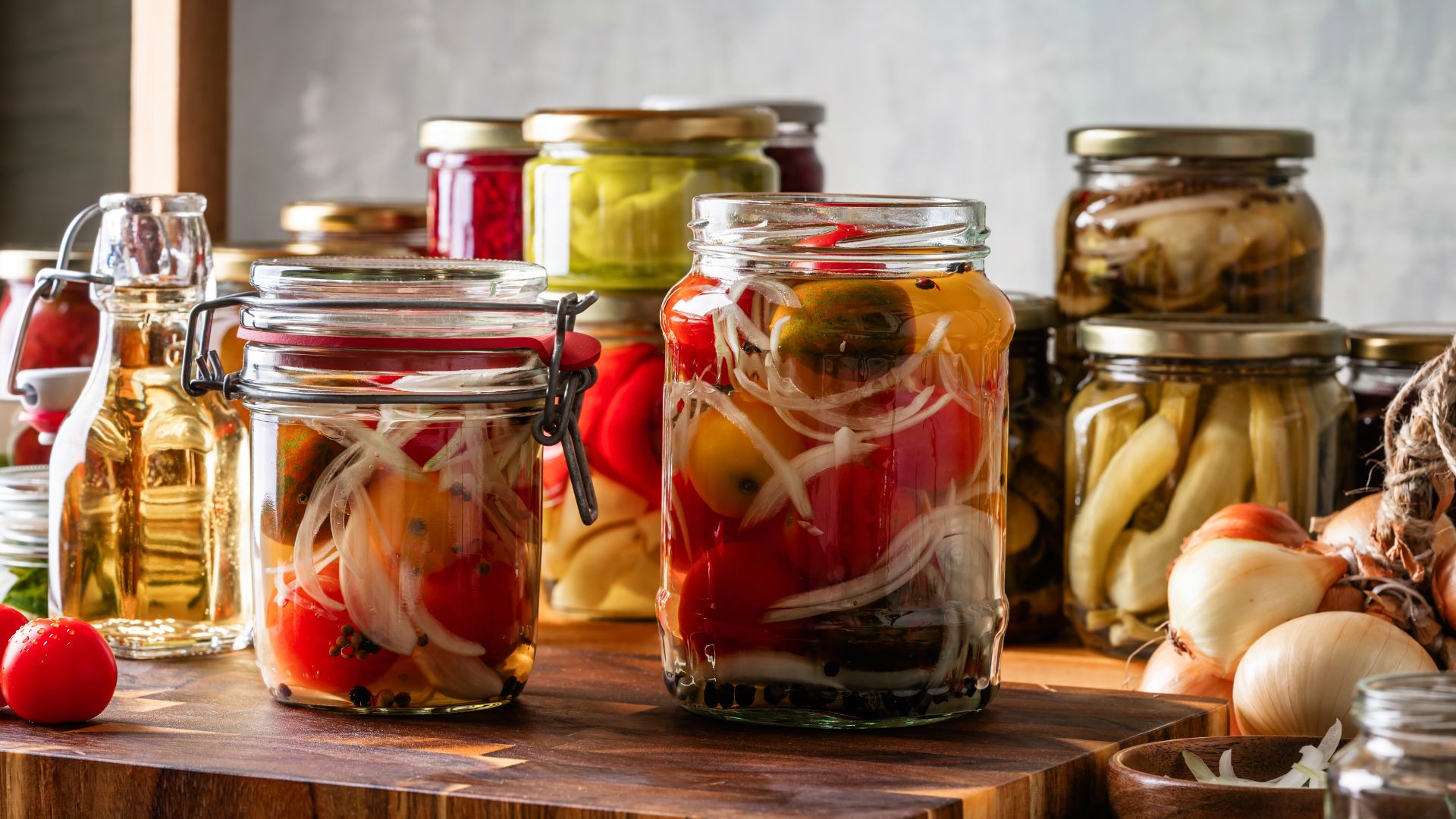You've heard of pro- and prebiotics, but what are postbiotics? Gut health experts reveal all
Postbiotics are quickly becoming the new buzzword in the world of gut health, but what are they? And do we really need them?


Sign up to our free daily email for the latest royal and entertainment news, interesting opinion, expert advice on styling and beauty trends, and no-nonsense guides to the health and wellness questions you want answered.
You are now subscribed
Your newsletter sign-up was successful
Want to add more newsletters?

Daily (Mon-Sun)
woman&home Daily
Get all the latest beauty, fashion, home, health and wellbeing advice and trends, plus all the latest celebrity news and more.

Monthly
woman&home Royal Report
Get all the latest news from the Palace, including in-depth analysis, the best in royal fashion, and upcoming events from our royal experts.

Monthly
woman&home Book Club
Foster your love of reading with our all-new online book club, filled with editor picks, author insights and much more.

Monthly
woman&home Cosmic Report
Astrologer Kirsty Gallagher explores key astrological transits and themes, meditations, practices and crystals to help navigate the weeks ahead.
You've likely heard of prebiotics and probiotics. Whether you're a gut health obsessive or just learning about the complex world of digestion, these words are everywhere from billboards to yoghurt pots.
Postbiotics are the final piece of the puzzle. While research is limited, they are worth knowing about about to better understand how to improve your gut health.
Here, woman&home speaks to a true gut expert and a women's health specialist to reveal what postbiotics are, whether they can be a handy tool to combat the digestive side effects of menopause, and how to get more of them into your diet, should you want to.
What are postbiotics?
Postbiotics are waste products. While pre- and probiotics are living microorganisms in our food and digestive systems, postbiotics are the end result or the byproduct of the fermentation process.
Sophie Medlin, a consultant dietitian and head of nutritional research at Heights, says postbiotics are created when gut bacteria (probiotics) ferment fibre-rich plant foods (prebiotics). "The main postbiotics we know about are short-chain fatty acids, which support the gut barrier, reduce inflammation, and support our metabolic health," she says. Other postbiotics are nutrients like vitamins B and K, and amino acids.
But they are far from useless. In fact, Medlin says the "whole point" of eating gut-healthy foods is to trigger the process of making postbiotics. This process is where we get many of the benefits from.
What's the difference between pre, pro, and postbiotics?
Probiotics are the tiny living microorganisms in foods like fruits, vegetables, and fermented foods (kombucha, kefir, and sauerkraut, etc). They help maintain a balance of healthy bacteria in the digestive system, which is what we mean when we talk about having 'good gut health'.
Sign up to our free daily email for the latest royal and entertainment news, interesting opinion, expert advice on styling and beauty trends, and no-nonsense guides to the health and wellness questions you want answered.
Prebiotics are a type of fibre that acts as food for the probiotics. You'll find prebiotics in fibre-rich foods like whole grains, beans, and vegetables. When broken down, these foods become prebiotics that feed the probiotics and help them to thrive in the gut.
When the probiotics have fed on the prebiotics, postbiotics are what's left. They could be leftovers from bacteria breaking down your breakfast, for example. As they are effectively waste or dead microorganisms, some scientists suggested calling them ghostbiotics.

Postbiotics are made when probiotics, which we can get from fermented foods, interact with prebiotics.
Benefits of postbiotics
- May improve gut health: "Postbiotics can be beneficial for women going through menopause, they help to regulate the gut microbiome, reduce inflammation in the gut, and strengthen the gut barrier, which can all be affected by the hormone fluctuations during menopause," says Dr Shirin Lakhani, a GP and women's health specialist.
- May reduce the severity of some menopause symptoms: “Certain postbiotics are believed to be more beneficial for the menopause than others, such as Equol, which is a postbiotic derived from soy isoflavones. These have been shown to reduce the severity of hot flashes," says the doctor.
- May help lower blood pressure and cholesterol: While stressing that these benefits were only found in some early studies, Dr Lakhani suggests that exopolysaccharides, a type of postbiotic and a complex sugar, may "reduce blood pressure and cholesterol, which can be a risk during menopause".
- May improve IBS symptoms: As well as generally improving gut health, Medlin says that early research suggests that supplementing with some types of postbiotics can "reduce the duration and severity of diarrhoea in children with gastroenteritis, improve IBS symptoms and support immune function."
So, is this a sign to top up your gut health supplements? No, says Medlin. "To date, there is very limited evidence around taking postbiotics in supplement form. These are very early studies, and we will need a lot more research to understand doses and effectiveness before making blanket recommendations."
Dr Lakhani agrees. "More studies are needed into how postbiotics can be used during menopause, to find conclusive data and evidence on the subject," she says.
However, if you are interested in boosting your gut health naturally, postbiotics are available (much like pre- and probiotics) in many fermented foods.
Can you get postbiotics from food?
Yes! "Yoghurt, kefir, tempeh, and miso-aged cheeses contain beneficial postbiotics," says Medlin.
However, she also points out that the best way to get more postbiotics into your diet is to "support your gut bacteria to generate more" - i.e. by eating plenty of foods containing prebiotics to feed the probiotics in your gut.
This article is for general interest and is not intended to suggest a course of action that might be suitable for you. Always consult a licensed healthcare professional before making decisions concerning your health and wellbeing.

Grace Walsh is woman&home's Health Channel Editor, working across the areas of fitness, nutrition, sleep, mental health, relationships, and sex. She is also a qualified fitness instructor.
A digital journalist with over seven years experience as a writer and editor for UK publications, Grace has covered (almost) everything in the world of health and wellbeing with bylines in Cosmopolitan, Red, The i Paper, GoodtoKnow, and more.